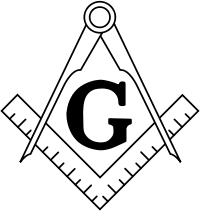Fraternal Organization Records and Genealogy
While researching your family history, you wonder what an acronym in your ancestors’ records or a symbol on their tombstone signifies. It’s possible that your ancestor was a member of a fraternal organization. While the practices and ceremonies of these types of organizations are secretive, you will find that many people will identify themselves in some way that they are a member of an exclusive organization. These membership organizations have been around throughout history and were especially popular in the U.S. during the 19th and early 20th centuries. Today, there are still many active membership organizations. Here’s a look at how you can determine if your relative was a member and how this information can enrich your research as you build your family tree on Geni.
What should I look for?
While researching your family tree, keep a look out for signs that your ancestor may be a member of a fraternal organization, including:
- A symbol or acronyms on your ancestor’s tombstone
- Acronyms in your ancestor’s obituary
- An insignia on your ancestor’s stationary, china, jewelry or other personal items
- Photos of your ancestor with a particular dress,clothing with an insignia or pin
How do I find what organization my ancestor was a member of?
In many cases, you may only find acronyms or symbols and not know the name of the fraternal organization. Genealogical societies such as the International Blacksheep Society of Genealogists may have a list of defined acronyms for common membership societies. Also, try checking out the some of the many online resources which have listings of fraternal organizations throughout history and many other resources to help you locate records. If you find that an organization is still active, you can contact the group to see if you can obtain any records regarding your ancestor. In the U.S., the website for the National Fraternal Congress of America has links to many active societies. Many organizations have also published their own newsletters. There are also many books about fraternal organizations that may be very helpful.
How does this help my genealogy research?
Fraternal organization records may include:
- Meeting minutes
- Membership information and applications – these might include full name, dates of admission, name of sponsor
- Death benefit claim forms – many organizations offer benefits to the family of a deceased member. You may find the date of death, obituary, a funeral notice and a list of benefits to the family members.
- Pages from a family bible
- Birth and death certificates
- Military documents
And don’t forget to add and share any new information you have discovered about your family to Geni!








 Genealogy Discussions
Genealogy Discussions Genealogy Projects
Genealogy Projects Popular Genealogy Profiles
Popular Genealogy Profiles Surnames
Surnames The Geni Blog
The Geni Blog The World Family Tree
The World Family Tree